Are you ready to take charge of your healthcare decisions? Advanced care planning is an essential conversation that ensures your wishes are respected, especially when you may not be able to voice them yourself. Crafting a letter for this purpose can be both empowering and reassuring for you and your loved ones. Let's dive deeper into how to create a meaningful letter that sparks open dialogue about your healthcare preferences.

Personalization and recipient's details
Advanced care planning (ACP) is crucial for ensuring that individual healthcare preferences are respected during medical emergencies. It involves creating clear, documented guidelines regarding treatment decisions. Personalization strengthens ACP, enabling healthcare professionals like physicians or care coordinators to tailor discussions to the unique values and desires of patients. Recipients of these discussions include family members and healthcare proxies, who play vital roles in executing the patient's wishes. Engaging in meaningful conversations about end-of-life care options, such as comfort measures and life-sustaining treatments, ensures alignment between the patient's goals and the medical approach. Sensitive topics like preferred location for care, including home or hospice facilities, enhance the discussion's relevance and depth.
Purpose and importance of the discussion
Advanced care planning conversations are essential for ensuring that individuals receive medical care that aligns with their values and preferences. These discussions focus on critical decisions regarding healthcare treatments in scenarios such as terminal illnesses or medical emergencies. For instance, specific medical interventions, like CPR (cardiopulmonary resuscitation) or intubation, can significantly impact a patient's quality of life. Engaging in this planning process allows individuals to articulate their wishes regarding end-of-life care, increases the likelihood that their preferences will be honored, and provides clarity for family members and healthcare providers. This proactive approach fosters communication about vital issues, strengthening the support network and reducing the burden of decision-making during challenging times.
Key topics to address (e.g., medical preferences, legal documents)
Advanced care planning discussions cover essential topics to ensure personal medical preferences are honored during critical health situations. Key areas include medical treatment preferences, addressing life-sustaining measures such as resuscitation and mechanical ventilation, and the role of palliative care. Legal documents like advance directives outline specific desires, while durable power of attorney for healthcare designates trusted individuals to make decisions on behalf of the patient. Additionally, discussions should address communication of values and beliefs regarding end-of-life care, ensuring that healthcare providers understand the patient's philosophy and wishes. Consideration of organ donation choices and registration within state health registries can also be vital elements of comprehensive advanced care planning.
Contact information for further discussion
Advanced care planning discussions are pivotal in ensuring that individuals' healthcare preferences are respected. These discussions often involve not only patients but also family members and healthcare providers. To facilitate this process, a designated point of contact is essential. For further discussions, individuals may reach out to specialized healthcare professionals, such as advanced practice nurses or social workers, who are trained in palliative care communication. It is advisable to provide contact details including phone numbers, email addresses, and office hours to ensure accessibility. Additionally, resources such as community health organizations or advanced care planning websites can provide valuable information and support for making informed decisions about end-of-life care preferences and legal documentation, including living wills or durable powers of attorney for healthcare.
Compassionate tone and support resources
Advanced care planning is a vital process that ensures your healthcare preferences and decisions are respected and understood, especially during serious health events. Engaging in this conversation allows individuals, families, and healthcare providers to align on the desired level of care, ensuring comfort and dignity in challenging times. Resources such as the Conversation Project (founded in 2010) provide tools and guidance for initiating these discussions, fostering an atmosphere of openness and compassion. Additionally, hospice and palliative care organizations, including the National Hospice and Palliative Care Organization (NHPCO), emphasize the importance of these planning discussions, offering emotional and practical support throughout the journey. Making informed decisions about healthcare can relieve anxiety and foster a sense of control over one's future.


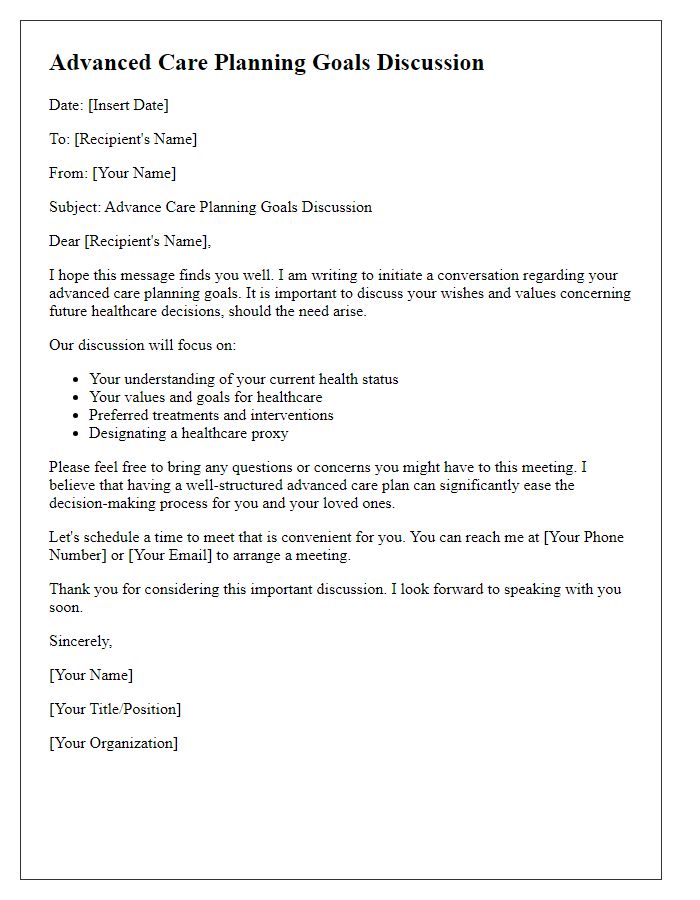
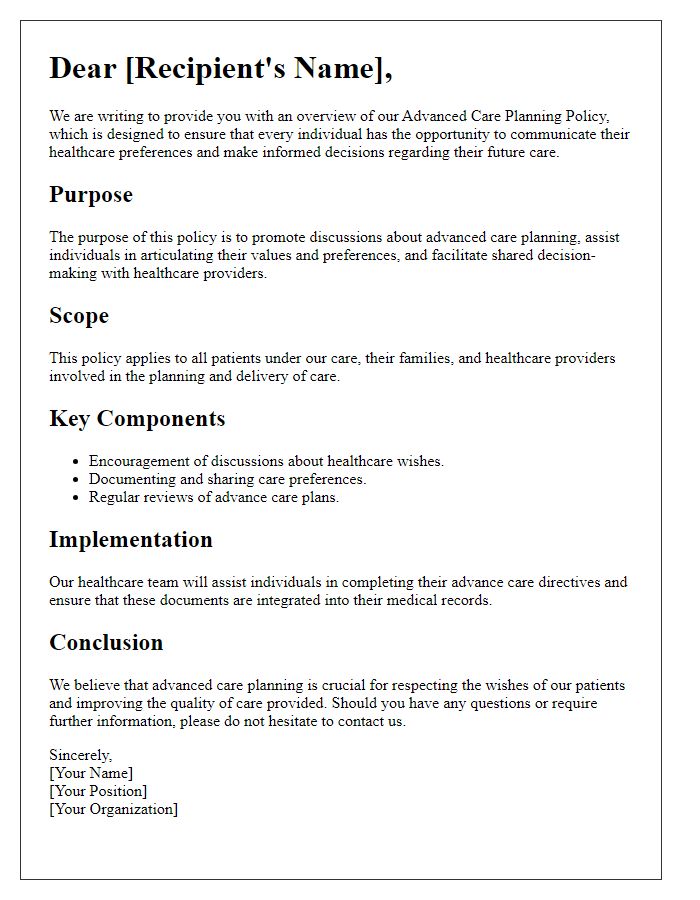
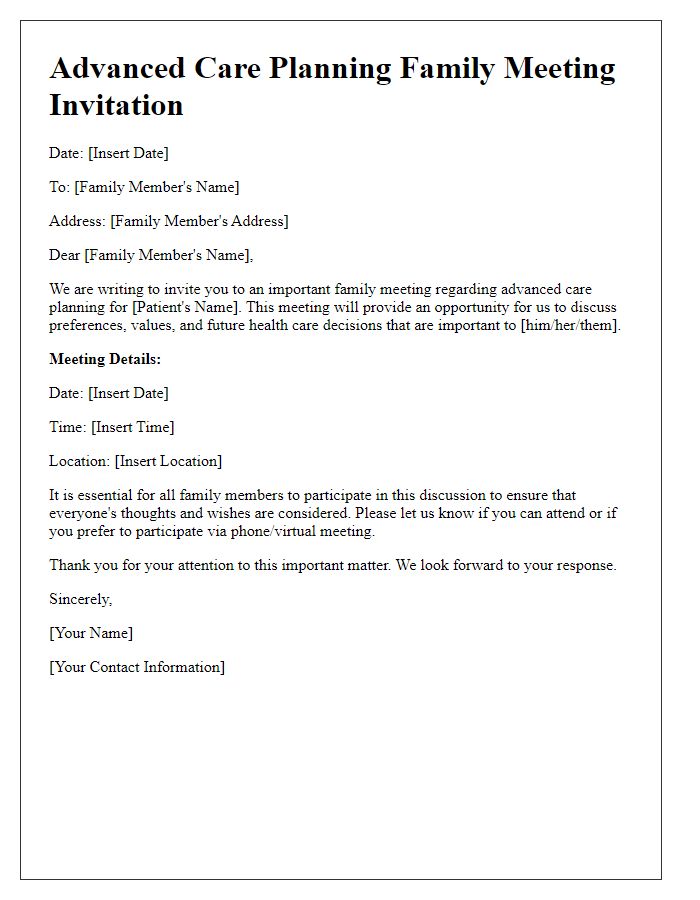
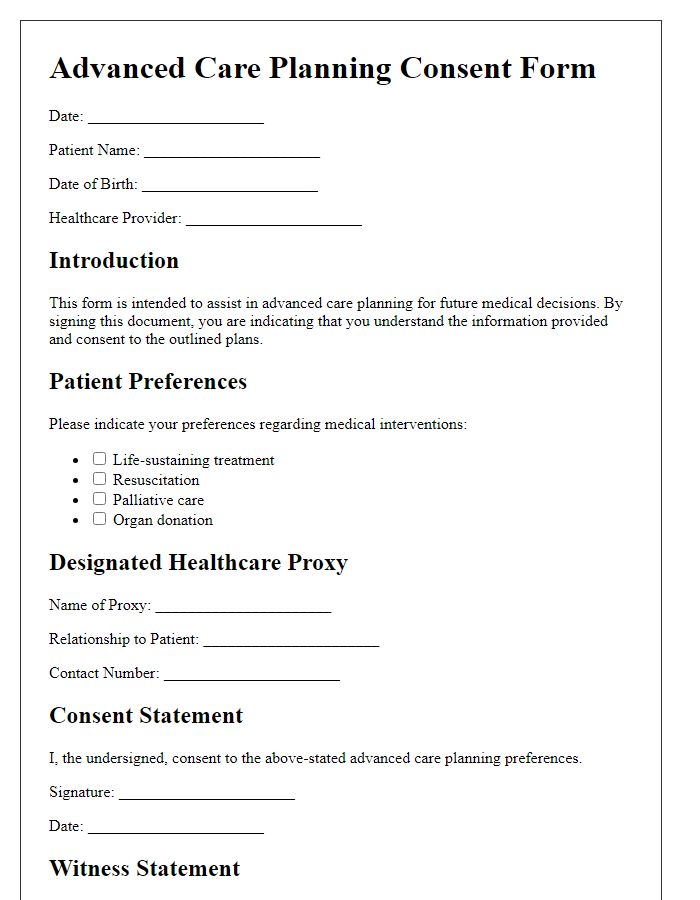
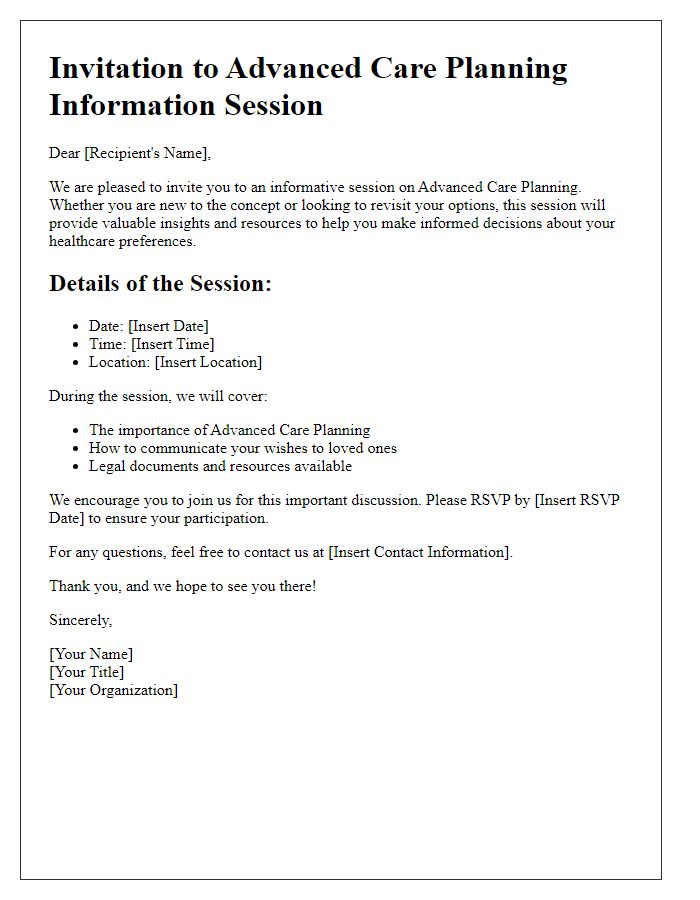
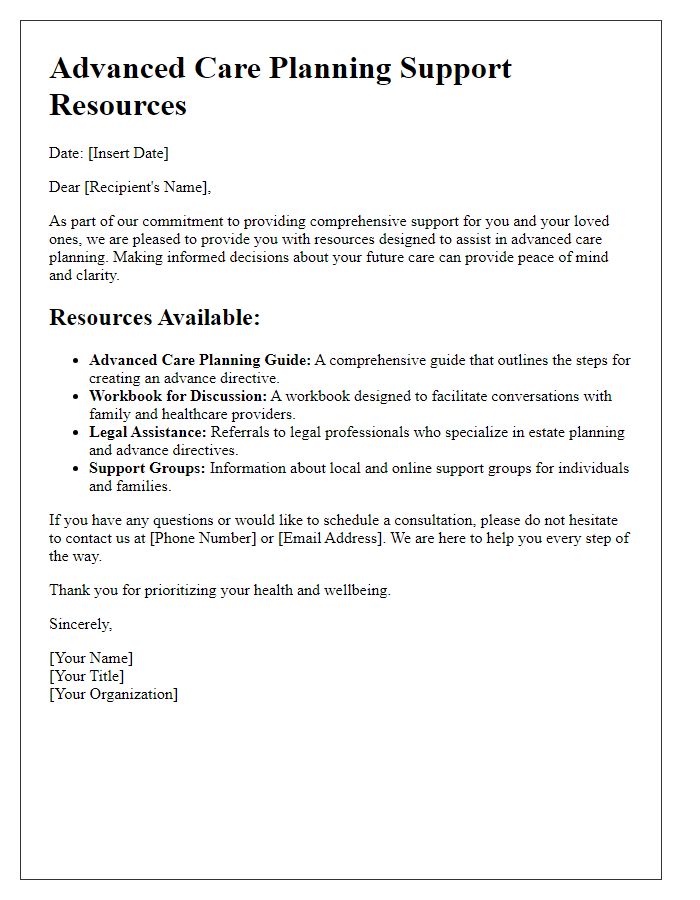
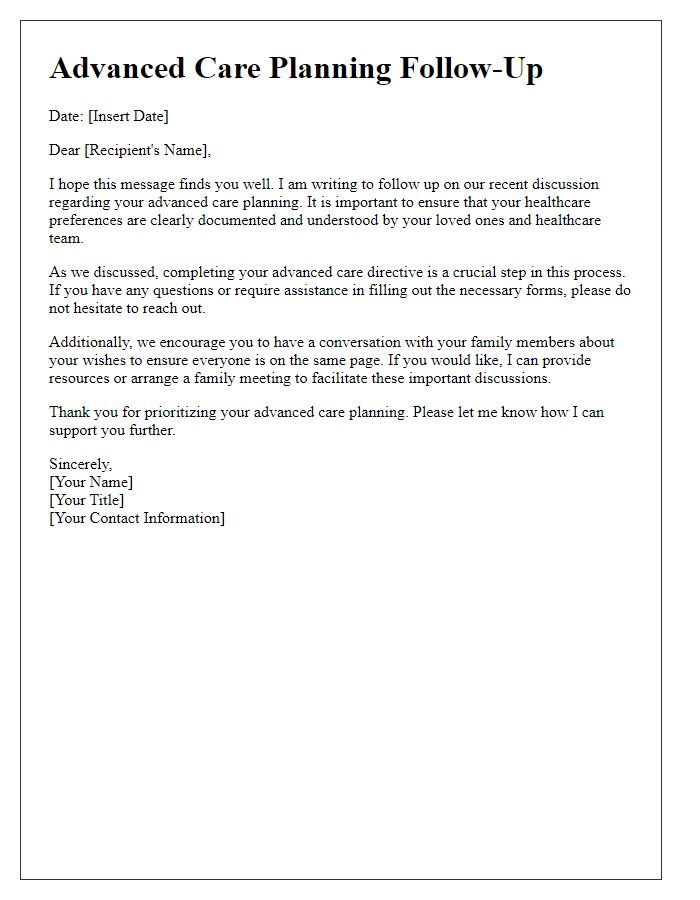
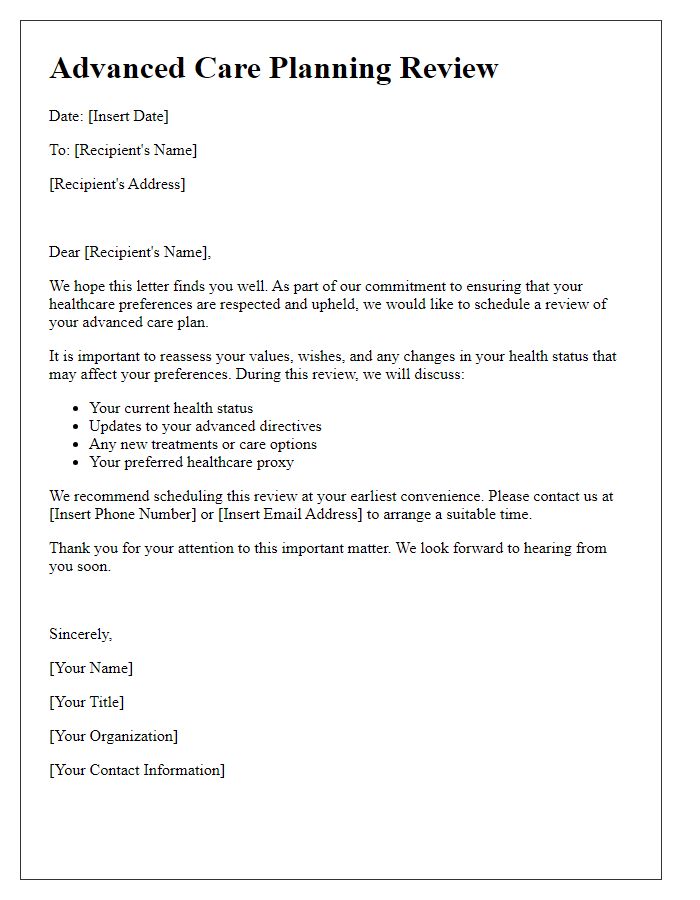
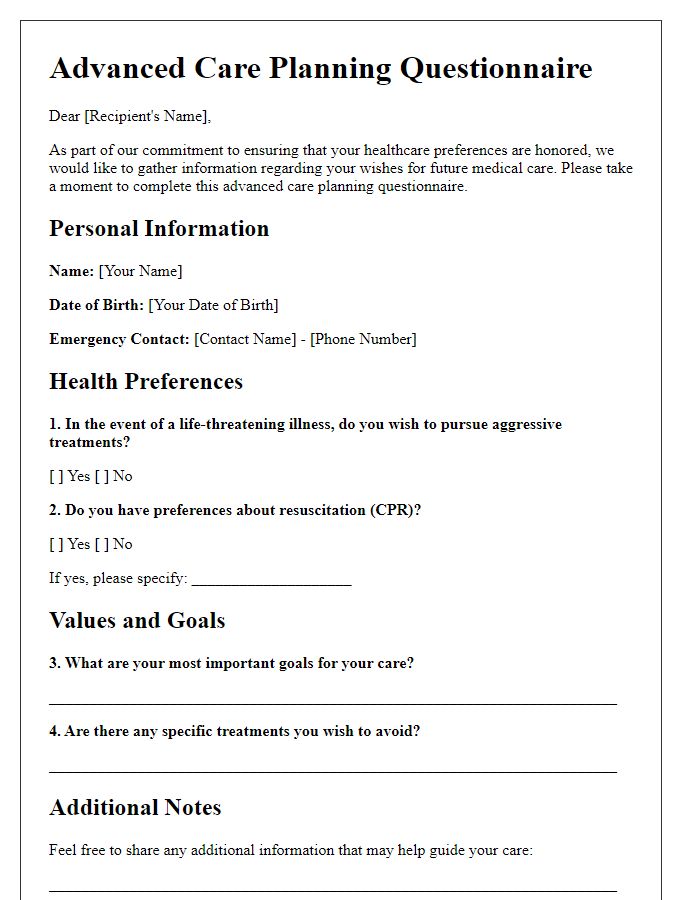


Comments